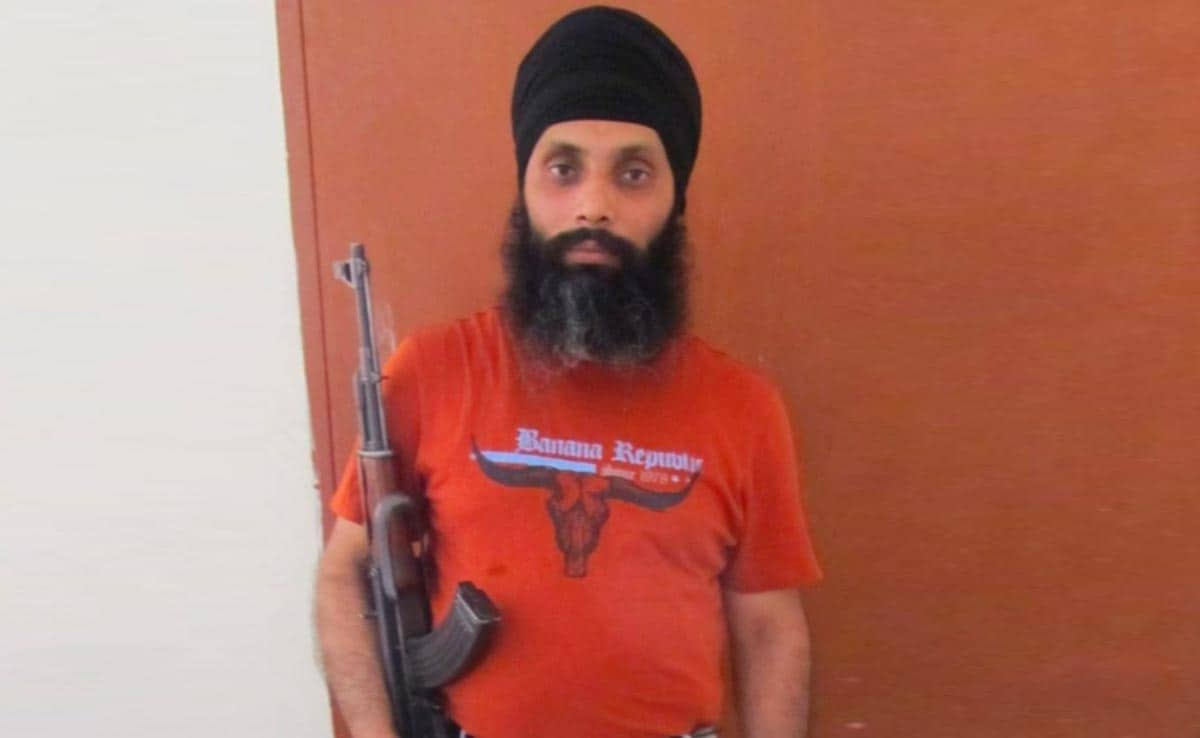
Nijjar, 45, was an Indian terrorist and chief of the banned Khalistan Tiger Force (KTF).
New Delhi:
Canada’s top Indian diplomat has demanded Ottawa produce evidence to substantiate its allegation that “Indian agents” killed Khalistani terrorist Hardeep Singh Nijjar in British Columbia, a claim that shattered bilateral ties between India and Canada when Prime Minister Justin Trudeau made it public in September.
Indian High Commissioner Sanjay Kumar Verma told The Globe and Mail that India has not received any credible evidence from Canada or its allies to support the allegation that Indian agents were involved in the June killing of Nijjar.
“There is no specific or relevant information provided in this case for us to assist them in the investigation,” Mr Verma said. “Where is the evidence? Where is the conclusion of the investigation? I would go a step further and say now the investigation has already been tainted. A direction has come from someone at a high level to say India or Indian agents are behind it.”
Nijjar, 45, was an Indian terrorist and chief of the banned Khalistan Tiger Force (KTF) and was killed outside a gurdwara in Surrey, British Columbia, on June 18. He was one of India’s most wanted terrorists who carried a cash reward of Rs 10 lakh.
Relations between Canada and India have been strained since late September, when India revoked the diplomatic immunity of 41 Canadian diplomats, forcing them to leave India by October 20.
Canadian intelligence sources claim that they intercepted communications and received intelligence from an undisclosed Five Eyes (an intelligence-sharing alliance made up of the US, Britain, Canada, Australia and New Zealand) ally that ties Indian operatives to Nijjar’s killing.
While adamantly denying any Indian role in the killing, Mr Verma stressed that all diplomatic discourse is privileged and cannot be used as evidence in court or released to the public.
“You are talking about illegal wiretaps and talking about evidence. Conversations between two diplomats are secure by all international law,” he said. “Show me how you captured these conversations. Show me that someone did not mimic the voice.”
Pressed on whether Canada had sought the extradition of any suspects in the killing, Mr Verma responded, “Those conversations are between the two governments.” The envoy stressed, however, that New Delhi has made 26 extradition requests to Ottawa over the past five to six years, yet none have been processed.
Threats To Indian Diplomats
Mr Verma revealed that he has been granted Royal Canadian Mounted Police (RCMP) security protection due to threats to his safety. The High Commissioner’s office released images of posters that have been circulating online and appearing in public places in Vancouver and Toronto, targeting him and the Indian consuls general in those cities. Some posters label the Indian diplomats as “enemies of Canada,” while others accuse them of operating a “terror house” or offer bounties for their assassinations.
“I feel that is hate speech and an incitement to violence,” Mr Verma said. “I am concerned about my safety and security. I am concerned about the safety and security of my consul generals. God forbid if something happens.”
Rebuilding Ties
Canada halted trade talks with India in September and deferred a planned trade mission, but the High Commissioner said India is keen to restart trade negotiations.
The deal “should be signed as soon as possible so that traders and investors can take advantage of that,” Mr Verma said, adding that New Delhi would welcome a delegation of Canadian businesspeople to India.
To mend diplomatic ties, Mr Verma stressed the need for both sides to engage in professional communication and dialogue.
“Let the investigation run its course,” he said, referring to the Nijjar death probe.
“Don’t allow your soil to be used by a group of Canadian citizens who want to dismember India, who want to challenge the sovereignty and territorial integrity of India,” Mr Verma said and added that New Delhi expects Canada to reign in Khalistan sympathisers.




